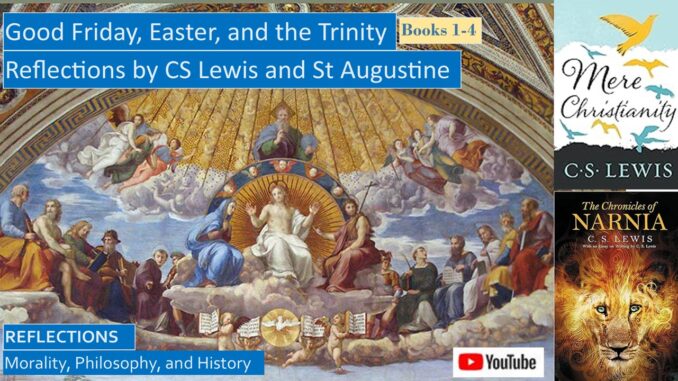
What did CS Lewis observe about Good Friday, Easter, and the Trinity in his Mere Christianity?
How was CS Lewis influenced by the teachings of St Augustine and the other ancient Church Fathers?
What does it mean that Jesus died on the Cross for our sins? How was the Lion Aslan in his Chronicles of Narnia an allegory of Christ?
How can you explain the Trinity, that Father, Son, and Holy Spirit together are one God?
YouTube video for this reflection: https://youtu.be/c71ygBqvPoY
We previously reflected on how CS Lewis and Christians met the challenges posed by the evil Nazi Regime, and how these experiences in World War II influenced decrees of Vatican II. This is the second of a pair of videos pondering whether the classical Catholic works influenced CS Lewis’ faith.
Facing the Nazi Menace: CS Lewis’ Mere Christianity and Viktor Frankl’s Memoirs on Auschwitz, Books 1-4
https://seekingvirtueandwisdom.com/facing-the-nazi-menace-cs-lewis-mere-christianity-and-viktor-frankls-mans-search-for-meaning/
https://youtu.be/x-9FeH9Gyng
Preparing the Way for Vatican II: CS Lewis’ Mere Christianity, Books 1-4
https://seekingvirtueandwisdom.com/preparing-the-way-for-vatican-ii-cs-lewis-mere-christianity/
https://youtu.be/udJQzmqst34
Was CS Lewis a Closet Catholic? Reflections on Mere Christianity, Books 2-4
https://seekingvirtueandwisdom.com/was-cs-lewis-a-closet-catholic-reflections-on-his-mere-christianity/
https://youtu.be/ksWomcEg8C0
HOW CAN WE MAKE SENSE OF GOOD FRIDAY AND EASTER?
How can we make sense of Jesus’ crucifixion on Good Friday and his resurrection on Easter Sunday? CS Lewis proclaims, “The central Christian belief is that Christ’s death has somehow put us right with God and given us a fresh start.” “We are told that Christ was killed for us, that His death has washed out our sins, and that by dying He disabled death itself. That is the formula. That is Christianity.” CS Lewis discusses how atonement erases the stain of original sin from mankind, but he avoids using these Catholic-sounding words.
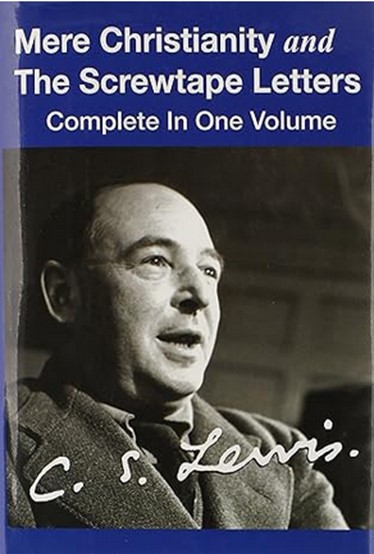

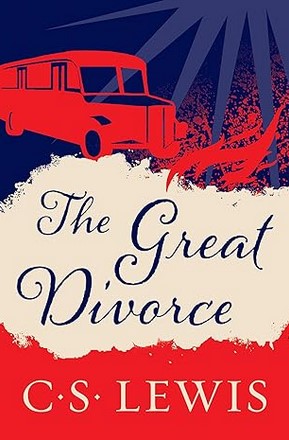
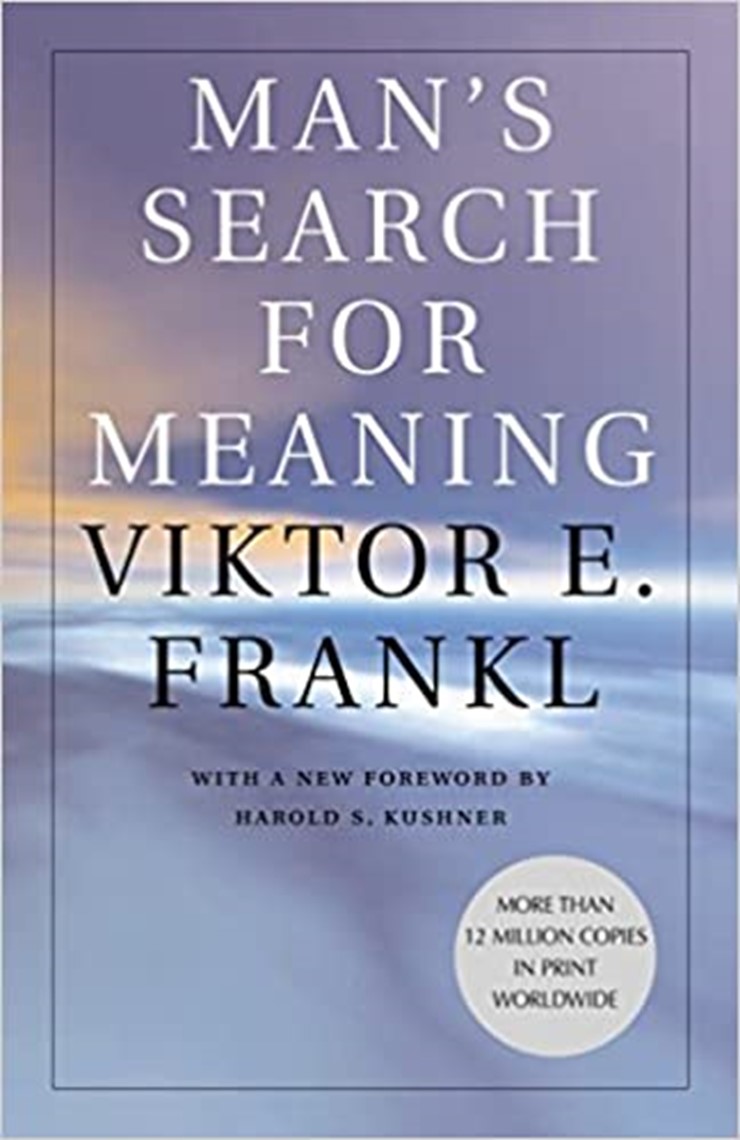
CS Lewis admits that both the Church of England and the Church of Rome, and he does not call them Catholics, accept multiple explanations for this Easter mystery. This is one of the rare instances where CS Lewis even mentions Catholicism.
What does it mean to say that the innocent Christ, who is sinless, has born the punishment for our sins? CS Lewis explains that fallen man is not merely imperfect, “he is a rebel who must lay down his arms” and surrender by repenting of his sins. We find it difficult to repent, as “it means unlearning all the self-conceit and self-will that we have been training ourselves into for thousands of years.
CS Lewis continues, “This repentance, this willing submission to humiliation and a kind of death” to sin, “is not something God demands of you before He will take you back and which He could let you off if He chose: it is simply a description of what going back to Him is like. If you ask God to take you back without it, you are really asking Him to let you go back without going back. It cannot happen.”
We cannot do this on our own. But CS Lewis posits, “Suppose God became a man, suppose our human nature, which can suffer and die, was amalgamated with God’s nature in one person, then that person could help us.” Observe how CS Lewis avoids the technical theological terminology that all too often prompts members of various denominations to bicker. “Jess would surrender His will, and suffer and die, because He was man; and He could do it perfectly because He was God.”
CS Lewis continues, “Our attempts at this dying will succeed only if we men share in God’s dying, just as our thinking can succeed only because it is a drop out of the ocean of His intelligence: but we cannot share God’s dying unless God dies; and He cannot die except by being a man. That is the sense in which Jesus pays our debt and suffers for us what He Himself need not suffer at all.”[1]
CS Lewis discusses this sacrifice in his Chronicles of Narnia, where the mighty lion Aslan is an allegory to Jesus in the alternate world of Narnia, where several children of London are involved in the moral struggles of that land. The wicked White Witch has deceived the London boy Edmund into betraying Aslan, and she declares that the Deep Magic requires that Aslan hand him over to her for capital punishment. But then Aslan offers his own life in place of the traitorous Edmund.
CS Lewis recounts Aslan’s execution by the wicked White Witch on the ancient Stone Table, surrounded by “Cruels and Hags and Incubuses, Wraiths, Horrors, Efreets, Sprits, Orknies, Wooses, and Ettins” “carrying torches which burned with evil-looking red flames and black smoke.” Aslan permitted them to bind his four paws together and humiliate him by shaving off his majestic mane. The wicked White Witch then bared her arms, whet her knife, and plunged the blade into Aslan.
This may also be an allegory of the story of Samson and Delilah, where the Nazirite Samson lost his superhuman strength when his long hair was shorn.
But the next day, this evil deed by the wicked White Witch was undone when the Stone Table spontaneously cracked, leading to the resurrection of Aslan, whose majestic mane was restored in all its glory. Aslan’s strength was also restored, just as Samson’s strength was restored when his long hair grew back, enabling him to kill many Philistines, just as Aslan and his army swiftly defeated the forces of the white witch.
Aslan told the London children: “Though the Witch knew the Deep Magic, there is a magic deeper still which she did not know. Her knowledge goes back only to the dawn of time. But if she could have looked a little further back, into the stillness and the darkness before Time dawned, she would have read there a different incantation. She would have known that when a willing victim who had committed no treachery was killed in a traitor’s stead, the Table would crack and Death itself would start working backwards.”[2]
But why would there be a deeper magic that ruled Aslan, who is an allegory of Christ? Does the question even make sense? This resembles the satisfaction theory of atonement drawing from the works of Anselm of Canterbury.[3] Although this is accepted Catholic doctrine, many are uncomfortable with the inference that Christ is subject to a principle deeper than His omniscience.
We see similar logical difficulties caused by the notion of Jesus being both God and man. For example, after the teenage Jesus is found by his frantic parents arguing with the rabbis in the Temple, we read in Luke that “Jesus increased in wisdom and in stature, and in favor with God and man.”[4]
How can an omniscient Jesus increase in wisdom? There are many unanswerable questions. Perhaps we should primarily focus on this message:
“For God so loved the world that he gave his only Son, that whoever believes in him should not perish but have eternal life.”[5]
Why did God do this? Perhaps the simplest answer is He wanted to, that God desires our salvation.
ST AUGUSTINE ON THE NATURE OF THE TRINITY
The most puzzling mystery of Christianity is the Trinity. The most puzzling part of CS Lewis’ Mere Christianity is his explanation of the Trinity. Perhaps this is because he wishes to hide his Catholic sources by restating the teachings of the Catholic Church Fathers so his Protestant listeners won’t close their ears.
His explanation would have been clearer if he had started with St Augustine’s classic seven-fold explanation of the Trinity:
- “The Father is not the Son nor the Holy Spirit.
- The Son is not the Father nor the Holy Spirit.
- The Holy Spirit is not the Father nor the Son.
- The Father is only the Father.
- The Son is only the Son.
- The Holy Spirit is only the Holy Spirit.”
- There is only one God, as Deuteronomy exhorts us. As St Augustine teaches us, “To all three belong the same eternity, the same unchangeableness, the same majesty, the same power.”
St Augustine continues, “In the Father is unity, in the Son equality, in the Holy Spirit the harmony of unity and equality; and these three attributes are all one because of the Father, all equal because of the Son, and all harmonious because of the Holy Spirit.”[6]
CS Lewis repeats this formulation briefly: “In God’s dimension, so to speak, you find a being who is three Persons while remaining one Being, just as a cube has six faces while remaining one cube.”
CS Lewis simplifies our understanding of the Trinity and how it affects us: When “an ordinary simple Christian kneels down to say his prayers,” “he knows that his real knowledge of God comes through Christ, the Man who was God, that Christ is standing beside him, helping him to pray, praying for him.” “God is to whom he is praying, the goal he is trying to reach. God is also inside him pushing him on, the motive power. God is also the road or bridge along which he is being pushed to that goal.”
CS Lewis concludes: “So that the whole threefold life of the three-personal Being is actually going on in that ordinary little bedroom where an ordinary man is saying his prayers.”[7]
THE TRINITY: BEGETTING AND PROCEEDING
CS Lewis discusses the puzzle of how Christ is the Son of God. CS Lewis writes: the Nicene Creed “says that Christ is the Son of God ‘begotten, not created;’ and it adds ‘begotten by his Father before all worlds,” in other words, eternally begotten, but not created. What CS Lewis does not explain is that the ancient Arian heresy proclaimed that Christ was created by the Father, and there was a time when Christ was not. No Christian denomination today believes this heresy.
CS Lewis distinguishes between making and begetting: “To beget is to become the father of: to create is to make. When you beget, you beget something of the same kind as yourself.”[8]
CS Lewis avoids discussing the clause in the Nicene Creed regarding the procession of the Holy Spirit. The Orthodox and original Nicene Creed states that the Holy Spirit proceeds from the Father only, while the Catholic Church version states that the Holy Spirit proceeds from the Father and the Son. This is the contentious Filioque controversy,[9] which CS Lewis prefers to avoid. CS Lewis also avoids discussing the proper doctrinal belief concerning the Virgin Mary, another contentious issue dividing Protestants and Catholics.
We can never be certain what the words BEGOTTEN and PROCESSION in the Nicene Creed actually mean, as no mortal human being can ever comprehend the mystery of the Trinity. All we can say for sure is that BEGETTING distinguishes the Son from the Father, and that PROCEEDING distinguishes the Holy Spirit from the Father.
The Filioque issue may no longer be blocking full communion between the Catholic and Orthodox Churches. The source quotes by Dr Wikipedia notes that “Pope Francis omitted the Filioque during his 2021 pastoral visit to Greece. Pope Benedict XVI also omitted the Filioque while reciting the Creed with Ecumenical Patriarch Bartholomew I during the Feast of St Peter and St Paul in Rome.”[10]
CS LEWIS AND ST AUGUSTINE’S CONFESSIONS ON TIME
Was CS Lewis’ chapter on Time and Beyond Time influenced by St Augustine’s reflections on Memory and Time in Book 11 of his Confessions? God is not only beyond time, as St Augustine prays to God, “You are the Maker of all time. If there was any time before you made heaven and earth, how can anyone say that you were idle? You must have created time, for time could not elapse before you had created it.”
As mortal creatures, we experience time differently from God. St Augustine prays to God, “Our years are completed when they move into the past. Your years, God, are one day, yet your day does not come daily but is always today, because your today does not give way to any tomorrow, nor does it take the place of any yesterday. Your today is eternity.”[11]
St Augustine seeks a scientific definition of time. St Augustine remembers that “once I heard a learned man say that time is nothing but the movement of the sun and the moon and the stars, but I did not agree.”[12] But St Augustine is frustrated in his search, as he prays, “I confess to you, Lord, that I still do not know what time is.”[13] One fact we can be sure of, is that we should not waste our time on earth on selfish endeavors but seek true happiness in Loving God and our neighbor.
St Augustine’s Confessions, Creation in Genesis, Manicheism, and Pagan Myths, Books 11 Through 13
https://seekingvirtueandwisdom.com/st-augustines-confessions-creation-in-genesis-manicheism-and-pagan-myths-books-11-through-13/
https://youtu.be/Ff-XsE5CuSo
CS Lewis repeats St Augustine, saying that “God is not in Time. His life does not consist of moments following one another.” He answers the question that many modern Christians have: “If a million people are praying to Him at ten-thirty tonight, He need not listen to them all in that one little snippet which we call ten-thirty.” “Jesus has infinite attention to spare for each one of us.”
CS Lewis refers to the incident when Jesus sensed that a woman seeking to be healed touched his garment, sensing the healing power that flowed out of him. “He is the God who knows everything and also a man asking his disciples, ‘Who touched Me?’”
This understanding that God is beyond time can help to explain the puzzle of predestination. CS Lewis, paraphrasing St Augustine’s Confessions, teaches us: “All the days are NOW for God. He does not remember you doing things yesterday; He simply sees you doing them, because, though you have lost yesterday, He has not. He does not foresee you doing things tomorrow; He simply sees you doing them: because, though tomorrow is not yet here for you, it is for Him.”[14]
THE TRINITY: ONE GOD, BUT THREE “PERSONS”
CS Lewis is not a systematic and coherent theologian; what his source was for this observation I would really like to know. “All sorts of people are fond of repeating the Christian statement that ‘God is love.’ But they seem not to notice that the words ‘God is love’ have no real meaning unless God contains at least two Persons. Love is something that one person has for another person. If God was a single person, then before the world was made, He was not love.”[15]
We may say that God is three persons, but that does not mean a Trinity person is the same as a human person. Perhaps a personality would be a better word than person, or perhaps not, as the persons of the Trinity are distinguished from one another by the puzzling divine properties of begotten and procession. We really do not know what it means to be a person of the Trinity, perhaps you could say that each person of the Trinity possesses a unique divine personal property.
God is Love, that defines God, how can one even speculate about a God who is not? God in Exodus proclaims, I AM WHO AM, and God is Love. Conversely, Love is God, you cannot love your neighbor unless you Love God, and if you Love God, you will love your neighbor. The Lutheran theologian Anders Nygren has a more coherent understanding of the concept of the Love of God, based on Scripture, and pondered through the ages.
Anders Nygren, On Christian Agape-Love and Eros-Love in Gospels and Pauline Epistles
https://seekingvirtueandwisdom.com/anders-nygren-on-christian-agape-love-and-eros-love-in-gospels-and-pauline-epistles/
https://youtu.be/KniBalQMemM
This is also clear in a favorite country song, You don’t Love God if you don’t love your neighbor.
https://www.youtube.com/watch?v=epArSqlMQ-E
CS Lewis asks us: “What, then, is the difference which He has made to the whole human mass? It is just this; that the business of becoming a son of God, of being turned from a created thing into a begotten thing, of passing over from the temporary biological life into timeless ‘spiritual’ life, has been done for us. Humanity is already ‘saved’ in principle. We individuals have to appropriate that salvation.”
CS Lewis continues, “But the really tough work—the bit we could not have done for ourselves—has been done for us. We have not got to try to climb up into spiritual life by our own efforts; it has already come down into the human race. If we will only lay ourselves open to the one Man in whom it was fully present, and who, in spite of being God, is also a real man, He will do it in us and for us.”[16]
A clearer explanation is Jesus descended to Earth, assuming flesh to live among us, so we could ascend from our sinful nature, becoming adopted sons of the Father.[17]
CONCLUSION
CS Lewis says that, as a Christian, you can explain the mystery of Christ “in all sorts of different ways. You can say that Christ died for our sins. You may say that the Father has forgiven us because Christ has done for us what we ought to have done. You may say that we are washed in the blood of the Lamb. You may say that Christ has defeated death. They are all true.”[18]
Next, CS Lewis ponders both the Cardinal Virtues, and the Theological Virtues of Faith, Hope, and Charity, or Love, and other moral issues, including romance and Christian marriage.
Morality and the Cardinal Virtues in CS Lewis’ Mere Christianity: Prudence, Temperance, and Justice, Books 1-3
https://seekingvirtueandwisdom.com/mere-morality-and-the-cardinal-virtues-in-cs-lewis-mere-christianity-prudence-temperance-and-justice/
https://youtu.be/Djbzmeb2nc0
CS Lewis’ Mere Christianity: Forgiveness, Pride, and Envy. Can Pride Ever Be Good?, Book 3
https://seekingvirtueandwisdom.com/cs-lewis-mere-christianity-forgiveness-pride-and-envy-can-pride-ever-be-good/
https://youtu.be/Pmu6hzU5RaQ
Faith, Hope, Charity, and Love in CS Lewis’ Mere Christianity: The Theological Virtues, Book 3
https://seekingvirtueandwisdom.com/faith-hope-charity-and-love-in-cs-lewis-mere-christianity-the-theological-virtues/
https://youtu.be/avesW8whRSQ
CS Lewis’ Mere Christianity: Intimacy, Romance, Marriage, and Divorce, Books 2-3
https://seekingvirtueandwisdom.com/cs-lewis-mere-christianity-reflections-on-intimacy-romance-marriage-and-divorce/
https://youtu.be/fZcOip3WGe8
Next, CS Lewis ponders whether Christianity is Hard, or Easy. Previously, we reflected on CS Lewis’ Great Divorce, on Hell and Heaven, and Viktor Frankl’s Man’s Search for Meaning, written after he survived his time in the Auschwitz work camps of World War II.
CS Lewis’ Mere Christianity: Is Living the Christian Life Hard or Easy?, Book 4
https://seekingvirtueandwisdom.com/cs-lewis-mere-christianity-is-christianity-easy-or-hard/
https://youtu.be/jZuWmInLh7s
CS Lewis’ Great Divorce, An Allegory of Hell and Plato’s Cave
http://www.seekingvirtueandwisdom.com/cs-lewis-great-divorce-an-allegory-of-hell-and-platos-cave/
St Gregory Of Nyssa on Beatitudes, Plato’s Allegory of the Cave, and CS Lewis and the Great Divorce
https://youtu.be/wuqwy3GyO_4
Viktor Frankl, Man’s Search For Meaning, His Life in a Nazi Concentration Camp in WWII
http://www.seekingvirtueandwisdom.com/viktor-frankl-mans-search-for-meaning-his-life-in-a-nazi-concentration-camp-in-wwii/
https://youtu.be/O-YtC9qGWPI
DISCUSSING THE SOURCES
CS Lewis sought to make the core theological Christian doctrines and teachings comprehensible for ordinary Christians, and he succeeded. For a more in-depth discussion of our sources, please review our detailed reflections and discussion of Mere Christianity, and also Viktor Frankl’s Man’s Search for Meaning, both of which were written in the World War II era, in our initial video of Mere Christianity and the Nazi Menace.
Facing the Nazi Menace: CS Lewis’ Mere Christianity and Viktor Frankl’s Memoirs on Auschwitz, Books 1-4
https://seekingvirtueandwisdom.com/facing-the-nazi-menace-cs-lewis-mere-christianity-and-viktor-frankls-mans-search-for-meaning/
https://youtu.be/x-9FeH9Gyng
[1] CS Lewis, Mere Christianity, included in volume containing Mere Christianity and the Screwtape Letters (HarperSanFrancisco, 2003, 1944), Book 2, Chapter 4, The Perfect Penitent, pp. 54-58.
[2] CS Lewis, The Chronicles of Narnia (New York: Harper Collins Publishing, 1982, 1953), The Magician’s Nephew, Chapters 13-15, pp. 173-185.
[3] https://en.wikipedia.org/wiki/Satisfaction_theory_of_atonement
[4] https://www.biblegateway.com/passage/?search=Luke+2%3A52&version=RSVCE
[5] https://www.biblegateway.com/passage/?search=John+3%3A16&version=RSVCE
[6] St Augustine, “On Christian Doctrine,” In the Nicene and Post-Nicene Fathers, First Series, Volume 2, translated by Rev JF Shaw (Boston: Hendrickson Publishers, 1994, first published 1887), Book 1, Chapter 5, p. 524.
[7] CS Lewis, Mere Christianity, Book 4, Chapter 2, The Three-Person God, pp. 160-163. When CS Lewis says that “a cube is six squares,” he must mean “a cube has six faces.” This is an error his editor did not catch.
[8] CS Lewis, Mere Christianity, Book 4, Chapter 1, Making and Begetting, p. 157 and https://en.wikipedia.org/wiki/Arianism
[9] https://en.wikipedia.org/wiki/Filioque
[10] https://en.wikipedia.org/wiki/History_of_the_filioque_controversy, footnotes 126 and 127.
[11] St Augustine, Confessions, translated by RS Pine-Coffin (New York: Dorset Press, 1986, 1961, originally 400 AD), Book 11, Chapter 13, p. 263.
[12] St Augustine, Confessions, Book 11, Chapter 23, p. 271.
[13] St Augustine, Confessions, Book 11, Chapter 25, p. 273.
[14] CS Lewis, Mere Christianity, Book 4, Chapter 3, Time and Beyond Time, pp. 167-170.
[15] CS Lewis, Mere Christianity, Book 4, Chapter 4, Good Infection, pp. 174-175.
[16] CS Lewis, Mere Christianity, Book 4, Chapter 5, Obstinate Toy Soldiers, pp. 181.
[17] https://www.cgg.org/index.cfm/library/verses/id/2087/adopted-children-god-verses.htm
[18] CS Lewis, Mere Christianity, Book 4, Chapter 5, Obstinate Toy Soldiers, pp. 181-182.

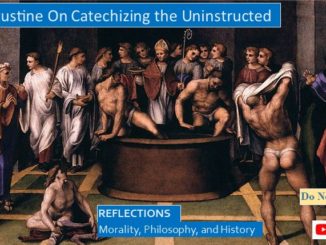
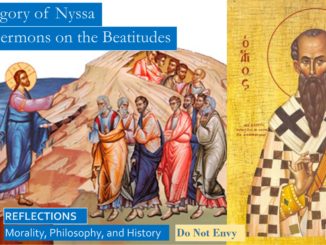
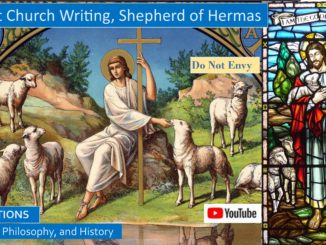
Be the first to comment